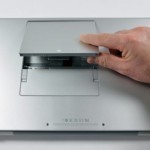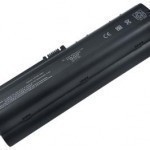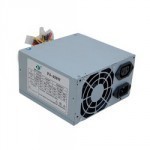Nickel-Metal Hydride batteries are rechargable batteries which are commonly used in mobile telephones and digital cameras. Nickel-Metal Hydride is abbreviated as NiMH. Nickel-Metal Hydride Battery Pros and Cons Pros: 30-40% more charge capacity than Nickel Cadmium batteries Fewer memory-effect problems than Nickel Cadmium betteries Less toxic than Nickel Cadmium batteries Cons: Fewer recharges than Nickel Cadmium batteries Higher self-discharge rate than Nickel Cadmium Nickel-Metal Hydride Battery Alternatives Alternatives to Nickel-Metal Hydride batteries include: Nickel Cadmium Lithium Ion Lithium Polymer
Lithium Polymer Batteries
Lithium Polymer batteries are a type of Lithium Ion rechargeable battery. Lithium Polymer batteries utilize a dry polymer which enables them to be manufactured in a greater variety of shapes and sizes than Lithium Ion batteries. Lithium Polymer batteries also utilize a gelled electrolyte to increase conductance. These batteries may be more correctly referred to as Lithium Ion Polymer batteries. Lithium Polymer Battery Pros and Cons Pros: Flexible form factor – Lithium Polymer batteries can be manufactured in a wide range of shapes and sizes Lightweight – Lithium Polymer batteries Read More
Nickel Cadmium Battery
A Nickel-Cadmium battery is a type of rechargeable battery that is often used instead of other common rechargeable batteries, such as Lithium-Ion batteries and Nickel-Metal Hydride batteries. Nickel-Cadmium batteries were once the most popular type of rechargeable battery, but have battled with other rechargeable batteries over the years concerning price and applications due to the high cost of cadmium and its potential health hazards. Nickel-Cadmium batteries now sell for about the same price as other types of rechargeable batteries, but are widely used for different purposes. While other types of Read More
How to Replace a MacBook Pro Battery

The battery that comes with the MacBook Pro will eventually need to be replaced as it is a consumable item with a finite usable life. The battery can be purchased directly from Apple Inc. or from a third party manufacturer. Only the batteries that Apple produce are really recommended as third party manufacturers may not produce quality batteries at lower prices. Purchasing the battery from Apple also allows the owner to get the service of having a new battery installed and the old one disposed of. Anyone with access to Read More
Power Converter
A power converter is a power supply unit (PSU) that not only delivers energy to an electronic device from an electrical outlet, but also regulates the current to meet the devices specific requirements. If you have any type of sophisticated electronics such as computers, laptops, high end audio equipment, cell phones etc, the odds are they also incorporate a power supply unit that also regulates the current. Most power converters are usually called Switched Mode Power Supplies (SMPS); they include a power supply unit and a circuit inside the unit Read More
Lithium Ion Battery
A Lithium Ion battery is a type of battery that is rechargeable and lasts longer than any other type of rechargeable battery currently on the market. Lithium Ion batteries are used for a wide variety of applications and are currently extremely popular due to their ability to be used in a wider range of temperatures than Nickel-Cadmium batteries and be charged more times. Lithium Ion batteries are used in digital devices and portable mechanical devices alike and can be charged over 1,000 times. How Lithium Ion Batteries Work Lithium Read More
How to Test a Laptop Battery

A laptop battery provides power for a laptop when it is not plugged into a power source. The laptop battery is in the laptop. The power cord that charges a laptop battery is called the AC Power Adapter. The laptop battery can only power the laptop for a limited amount of time before the battery loses power and has to be recharged with the AC Power Adapter. The length of time the laptop battery lasts mostly depends on the applications and programs the user runs on the laptop. Other Read More
Laptop Batteries
There are a wide variety of batteries that can power laptops for a long period of time. Depending on the laptop and the types of batteries that it uses, the charge length and other variables usually affect how long they last. Laptop batteries are useful as they are a direct power source to the laptop. Low power laptops consume less power and can reserve battery charge longer. Modern day laptop batteries last anywhere from 6-8 hours easily and can extend battery charge by using the laptop for lower power consumption Read More
How an Uninterruptible Power Supply Works
An Uninterruptible Power Supply (UPS) is a device connected between the power source and a computer to ensure that electrical flow is not interrupted. UPS devices use batteries to keep the computer running for a period of time after a power failure. It is not to be confused with standby generators which do not provide protection from a momentary power interruption, or which may result in a momentary power interruption when it is switched into service, whether manually or automatically. UPS devices usually provide protection against power surges, brownouts and Read More
SMPS Power Supply

An SMPS (Switched-Mode Power Supply) is a device that provides power to motherboards in small electronic devices such as laptops and mobile devices. It is often used in situations that require small or light weight components, where an ATX power supply would not be suitable. An SMPS is also capable of a much more efficient transfer of energy, as it is capable of managing voltage and current levels by switching between on and off at fast speeds, rather than simply dissipating extra voltage like ATX power supplies do. Applications Read More


Share on: